10 Key Insights on License Plate to VIN Lookups You Need to Know

10 Key Insights on License Plate to VIN Lookups You Need to Know
Overview
The article highlights key insights related to license plate to VIN lookups, underscoring their importance in accessing comprehensive vehicle data. These lookups are significant for understanding legal, privacy, and accuracy considerations. By outlining the benefits of such lookups, we can see how they enhance decision-making for potential buyers.
Furthermore, the article emphasizes the necessity of using reliable data sources, illustrating how these insights empower users to navigate the complexities of vehicle history effectively.
How can these insights aid you in making informed decisions? By leveraging accurate data, users can better assess vehicle histories, ultimately leading to more confident purchasing choices.
Introduction
The world of automotive data is evolving rapidly, with license plate to VIN lookups emerging as a crucial tool for both buyers and sellers in the automotive market. These lookups unlock essential vehicle information, revealing critical insights about a car's history, ownership, and potential issues. This ultimately empowers informed decision-making.
However, the growing reliance on these services raises numerous questions regarding data accuracy, legal implications, and privacy concerns. How can individuals navigate this complex landscape to ensure they are making the best choices when it comes to vehicle purchases?
This article delves into ten key insights that illuminate the intricacies of license plate to VIN lookups, providing readers with the knowledge needed to leverage this powerful resource effectively.
Initial Data Offering: Access Comprehensive Vehicle Data for License Plate Lookups
The Initial Data Offering (IDO) serves as a for accessing , including the specifics necessary for . What features does IDO provide? Users can explore a powered by SavvyIQ's AI-driven Recursive Data Engine, which enhances a dynamic graph of 265 million global entities. This platform offers significant advantages by streamlining the process of obtaining , ownership, and specifications. As a result, it becomes an seeking precise details to inform real-time decisions and .
How can this data empower your operations? By leveraging IDO, users can make informed choices that optimize their processes and .
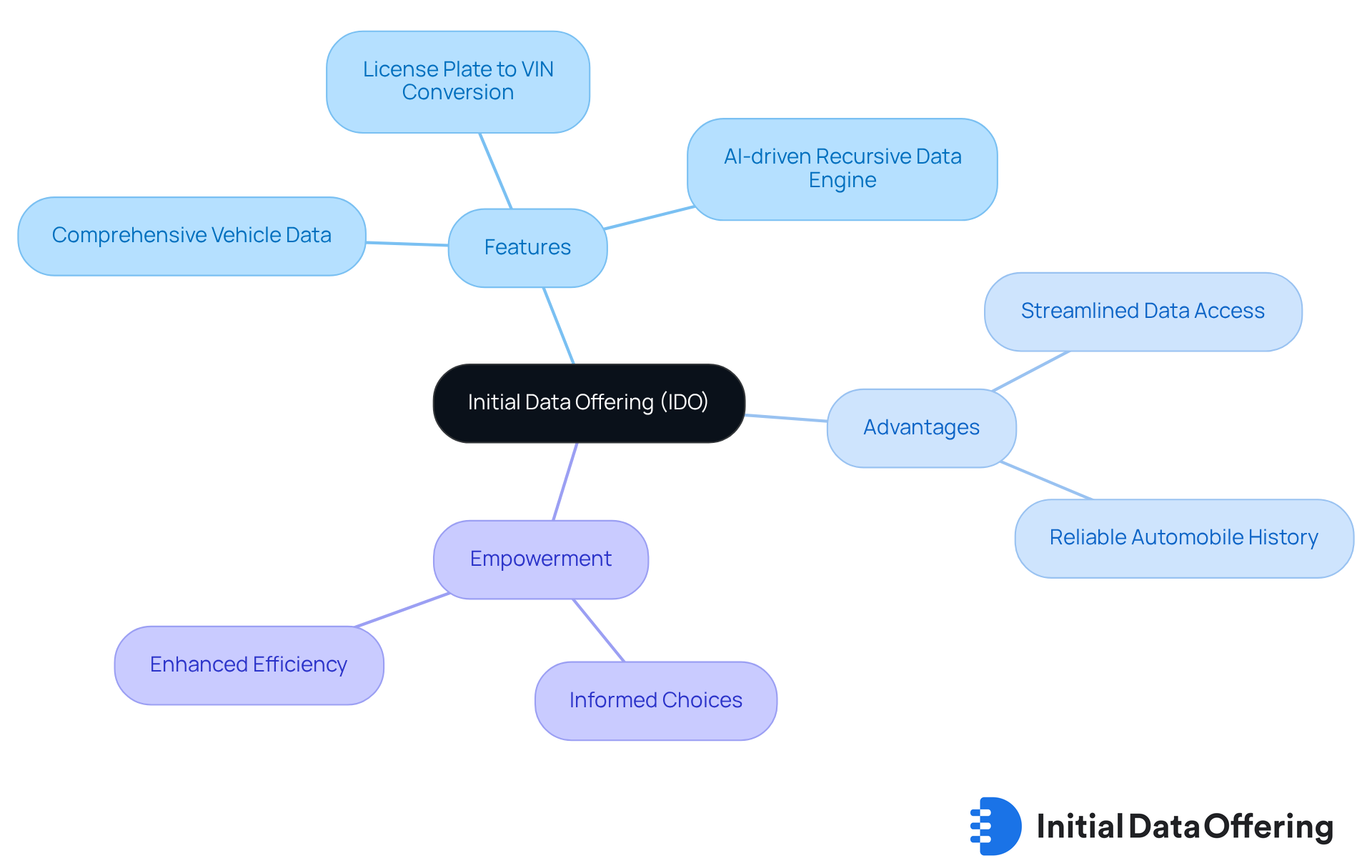
EpicVIN: Utilize Advanced License Plate Lookup for Vehicle History Insights
EpicVIN offers an advanced service that enables a , providing . This service features critical information, including:
- Accident history
- Title status
- Previous ownership records
The advantage of accessing such is significant for , enabling them to regarding auto purchases. By revealing potential issues before finalizing a deal, to avoid costly mistakes. In 2025, the average number of auto history reports accessed monthly is projected to reach [insert specific statistic], underscoring the growing reliance on such services and reflecting a significant trend in the automotive market.
Industry experts, including Chris Hardesty, emphasize that "a details its , and mileage, to help buyers spot red flags like salvage or flood history." However, while these reports provide valuable insights, it is important to note that they may miss unreported repairs and do not reflect the car’s current condition. Therefore, a professional inspection remains necessary.
EpicVIN's dedication to delivering precise and comprehensive insights establishes it as a leader in the history reporting field, ensuring users possess the essential tools to navigate their purchasing choices effectively.
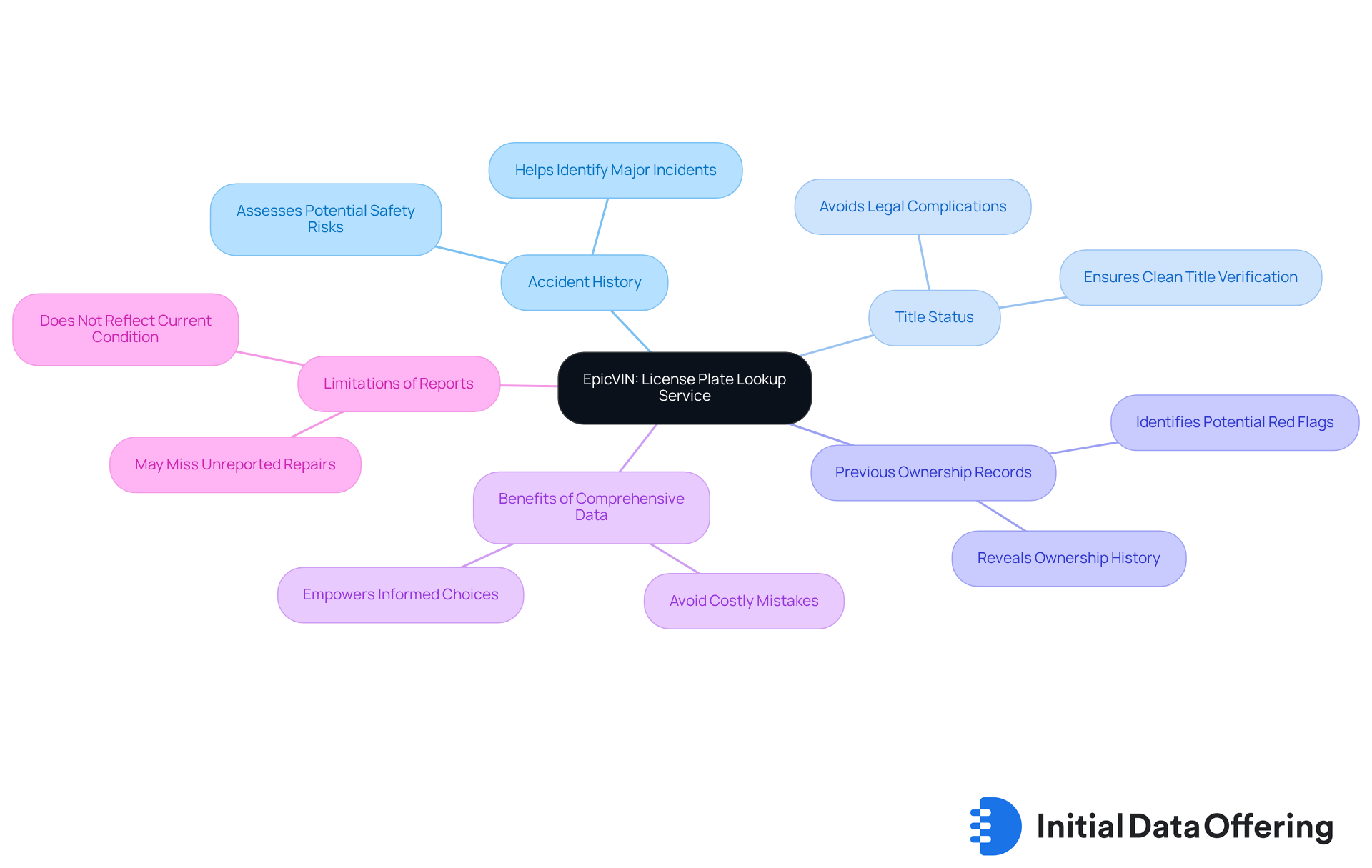
Legal Considerations: Understand the Legality of License Plate Lookups
Understanding the surrounding is crucial for anyone engaging in this practice. State regulations regarding can vary considerably, with numerous states enforcing stringent laws to . Unauthorized access to this data can lead to severe legal repercussions, including fines and possible criminal charges. For instance, the U.S. Department of Justice emphasizes the importance of verifying the legitimacy of title documents before issuing new titles, highlighting the need for compliance with established regulations.
Recent changes in laws have further influenced the accessibility of . Many states have enacted provisions to limit the disclosure of DMV data, particularly to federal agencies, to . This shift reflects a growing awareness of the need to safeguard sensitive information from unauthorized access, especially concerning immigration enforcement.
Legal challenges have also arisen in the area of license number lookup services. For instance, situations have emerged where individuals or organizations encountered scrutiny for , resulting in lawsuits and regulatory investigations. These incidents underscore the importance of adhering to when conducting lookups from license plate to VIN.
Moreover, states are encouraged to review their laws regularly to ensure compliance with evolving regulations. Currently, 19 states, in addition to the District of Columbia and Puerto Rico, have regulations permitting driver’s licenses for residents irrespective of immigration status, which further complicates the landscape of . Comprehending these nuances is crucial for anyone engaged in vehicle information lookup services, ensuring that their practices conform to legal requirements and safeguard the rights of individuals.
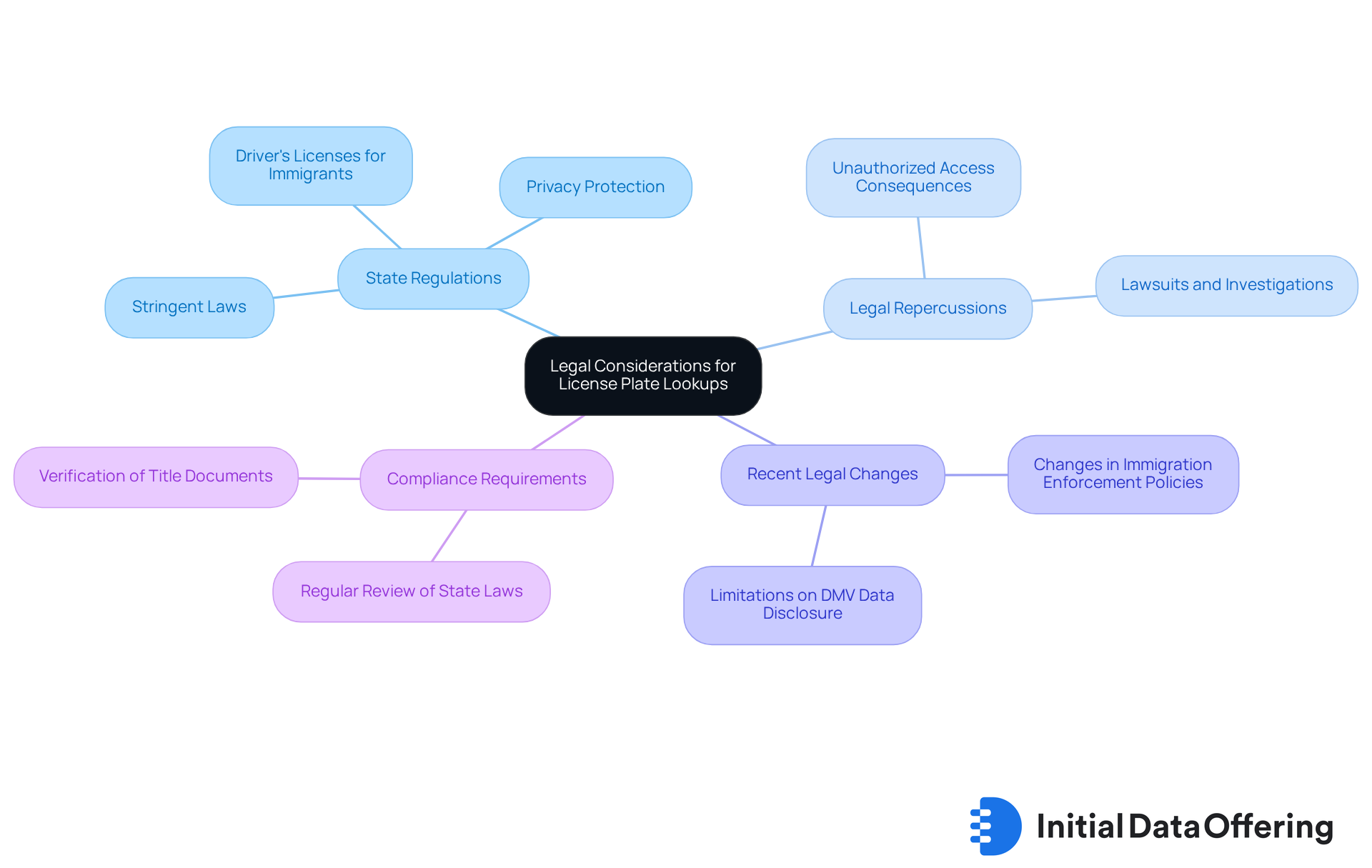
Data Accuracy: Evaluate the Reliability of License Plate Lookup Information
When conducting lookups from license plate to VIN, assessing the reliability of the information is crucial. Not all information sources are equal; some may provide outdated or flawed details. To guarantee the utmost level of precision, users should select such as IDO or EpicVIN, which emphasize . Based on industry insights, nearly 90% of users have reported encountering discrepancies in data from less trustworthy sources. Therefore, is essential.
Information analysts recommend searching for platforms that clearly outline their collection techniques and consistently verify their details. By choosing , users can significantly enhance their chances of obtaining . This ultimately leads to more . Have you considered how the integrity of your data sources can ? Selecting the right platform not only improves accuracy but also fosters confidence in the information you rely on.
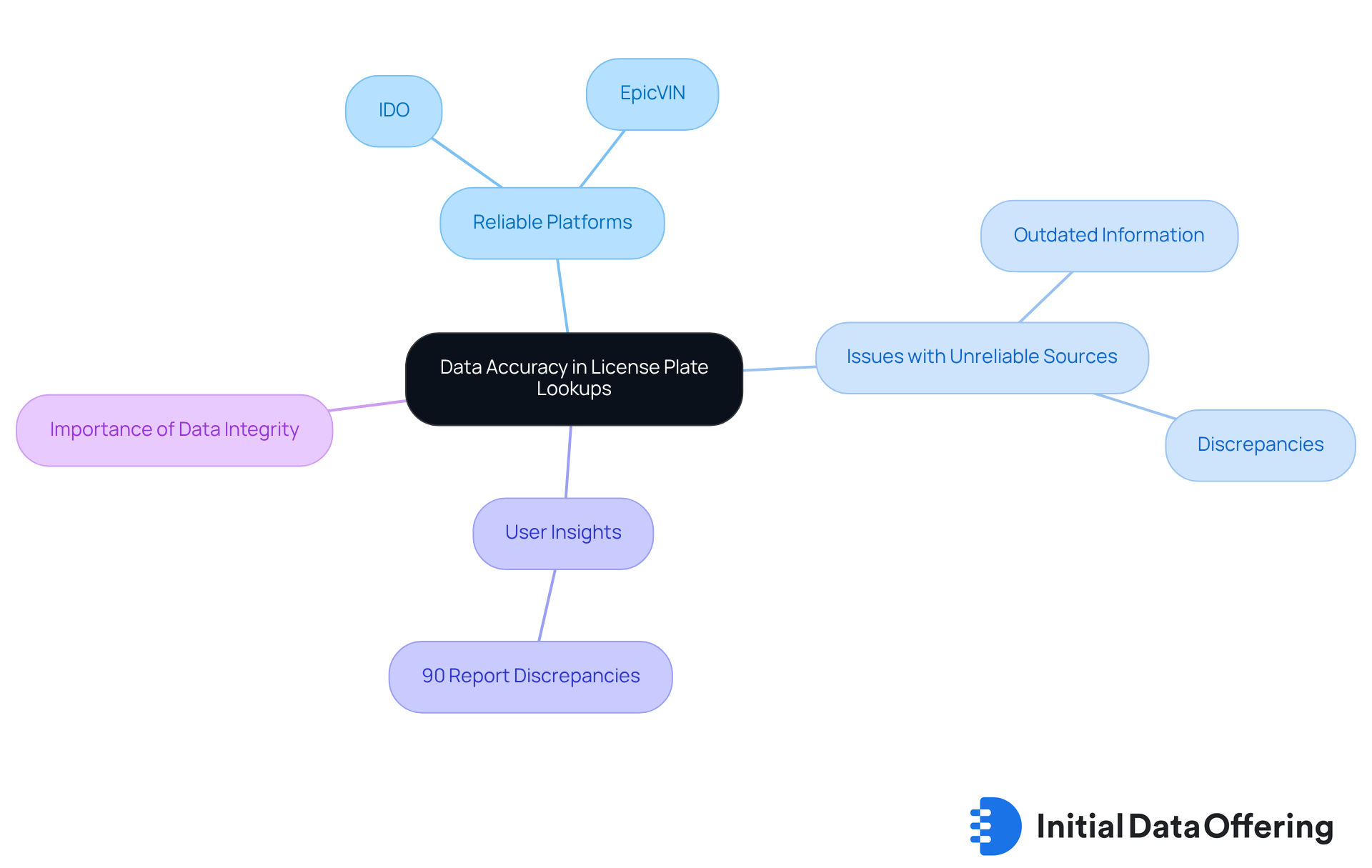
Benefits of License Plate Lookups: Uncover Vehicle History and Ownership
offer significant advantages by revealing a . This process empowers potential buyers to uncover , including past accidents, title issues, and odometer discrepancies. Notably, studies show that 92% of buyers conduct , underscoring the importance of thorough investigation prior to a transaction. Clarity in not only aids in but also significantly boosts consumer confidence in the automotive market. As Cox Automotive states, "Transparent pricing has become a fundamental expectation," which emphasizes the broader context of in this domain.
For instance, purchasers who obtain tend to feel more assured in their buying decisions, leading to ; 86% of content customers are likely to buy again from and recommend the same dealer. As buyers increasingly prioritize transparency, the impact of automotive history on purchasing choices becomes evident, highlighting the vital role of registration lookups in today's automotive landscape. Therefore, always perform a check from license plate to VIN before buying a car to ensure transparency and mitigate potential issues.
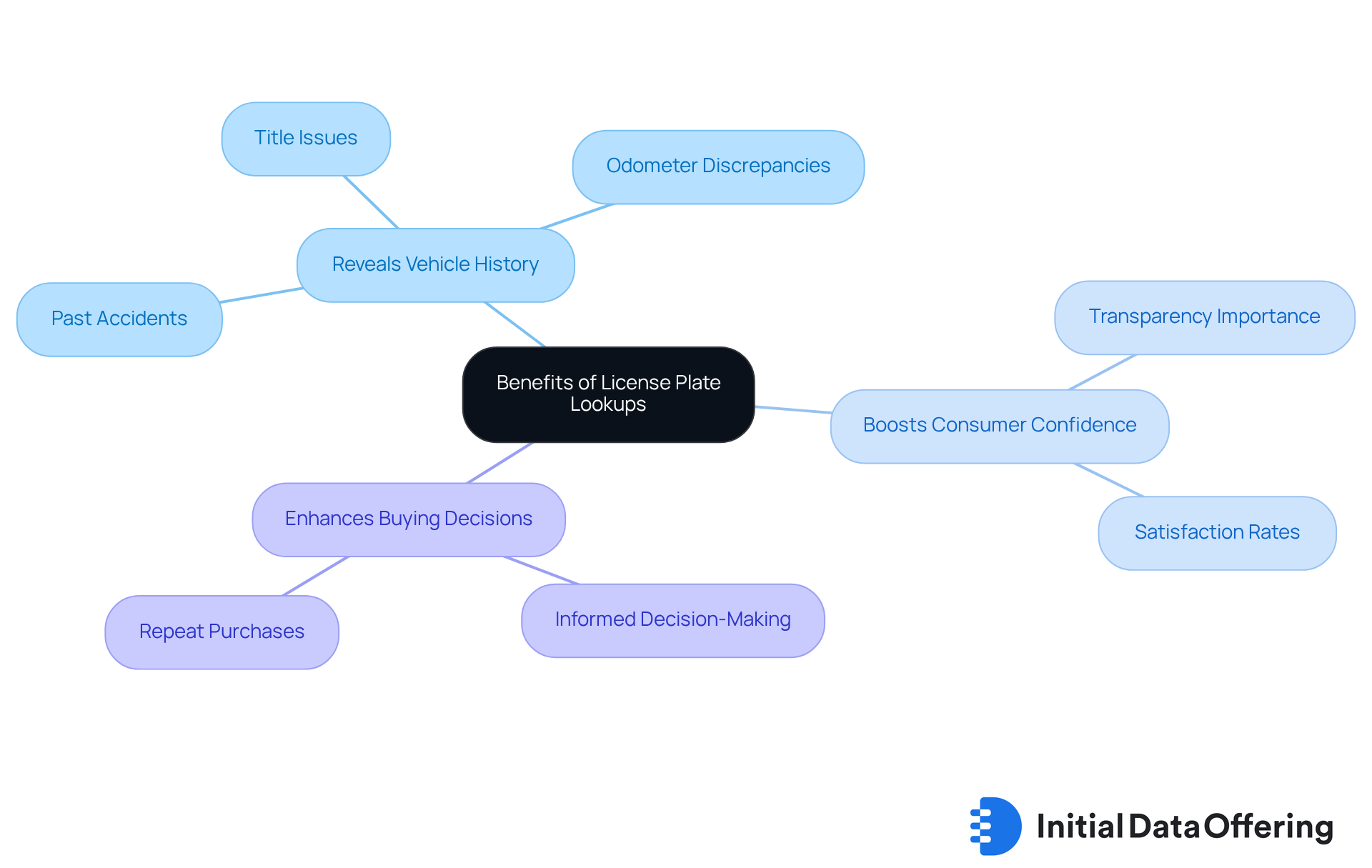
How to Perform a License Plate Lookup: Step-by-Step Guide
Conducting a search from license plate to VIN is an uncomplicated procedure that can yield . This will help ensure :
- Select a Reliable : Choose a trusted service like IDO or EpicVIN, which are known for their . Be cautious, as many online services claiming to offer instant results may be scams.
- Access the License Number Lookup Section: Navigate to the specific area dedicated to on the platform.
- Input Required Information: Enter the license plate number along with any additional details requested to refine your search.
- Review the Report: Analyze the generated report, which typically includes , , and any relevant incidents. It’s important to remember that only government entities can access private details regarding vehicle ownership.
- Save or Print the Report: For future reference, ensure you save or print the report, as it may contain essential details for your needs. If you do not receive results within the expected timeframe of 2 to 4 weeks, consider following up with the platform.
As Bryan Hamby, owner of Auto Broker Club, highlights, "The more details you possess, the more likely you will achieve a beneficial outcome." By following these steps, users can effectively utilize data platforms to access , thereby improving their decision-making processes.
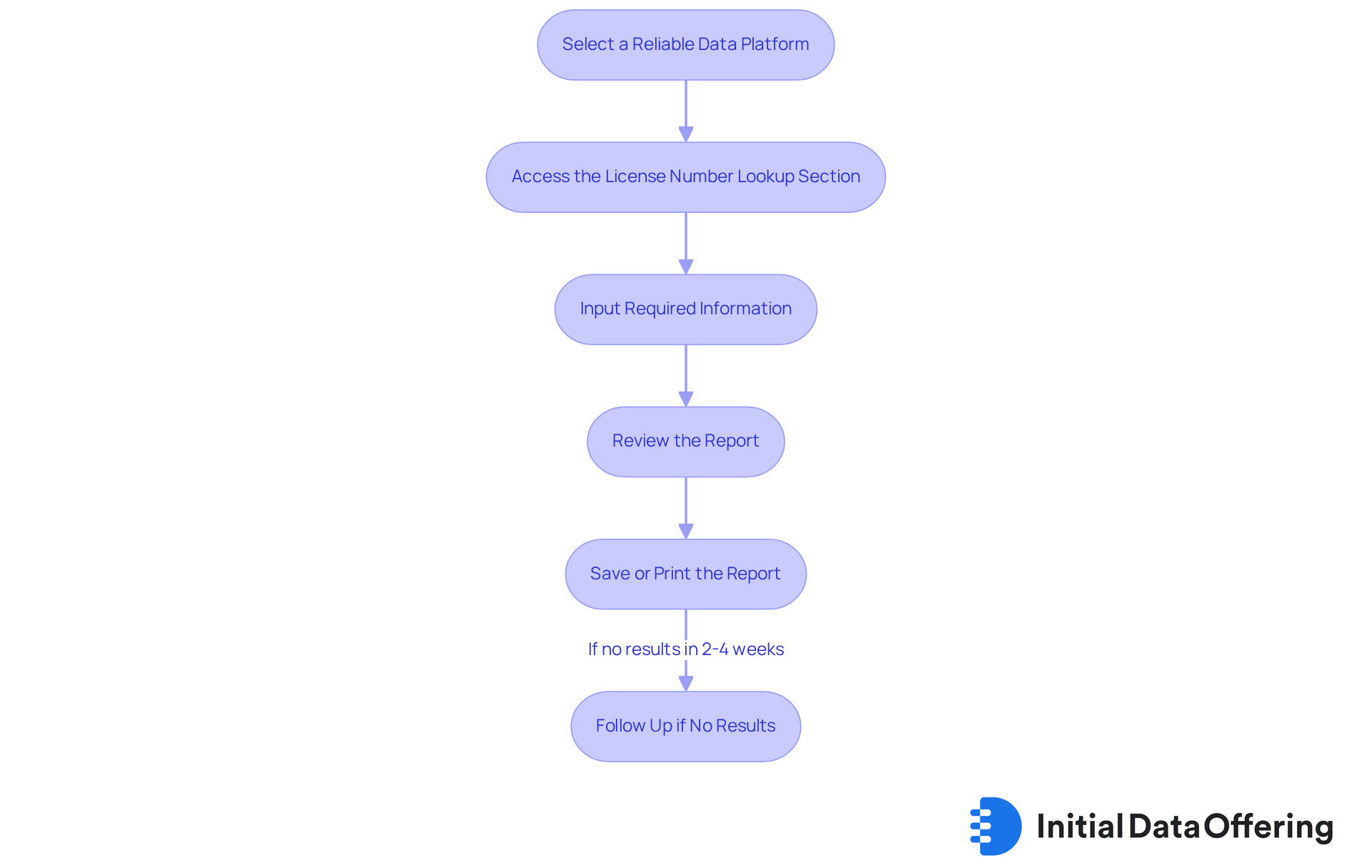
License Plate Numbers vs. VINs: Key Differences Explained
License tag numbers and Numbers (VINs) serve distinct functions in [automobile identification](https://initialdataoffering.com/blog/10-b-2-b-contact-database-provider-tools-for-effective-lead-generation). A registration number, issued by the state, can change with ownership transfer or re-registration. In contrast, a VIN is a unique 17-character identifier assigned to each automobile, remaining constant throughout its lifespan. This permanence enables VINs to offer , including ownership changes, accident reports, and maintenance records. While registration numbers primarily function as official identification markers, connecting automobiles to their registration records, VINs provide a .
Understanding these distinctions is crucial for during . For instance, while a license plate to VIN search may yield basic information such as the make and model of the automobile, a VIN lookup can provide extensive data, including specifications and historical records. Research indicates that only about 60% of users fully grasp the distinctions between these identifiers, highlighting the need for greater awareness in the automotive community.
Automotive professionals emphasize the significance of both the license plate to VIN and other identifiers. As one specialist remarked, "The of an automobile's history, documenting ," while license plates are essential for prompt identification and legal adherence. The concept of VINs dates back to the 1950s, but it wasn't until 1981 that the National Highway Traffic Safety Administration (NHTSA) standardized the format. This standardization underscores the importance of VINs in identification and history tracking. Such an understanding is essential for anyone engaged in transportation transactions, insurance evaluations, or regulatory compliance, ensuring informed choices and precise data retrieval.
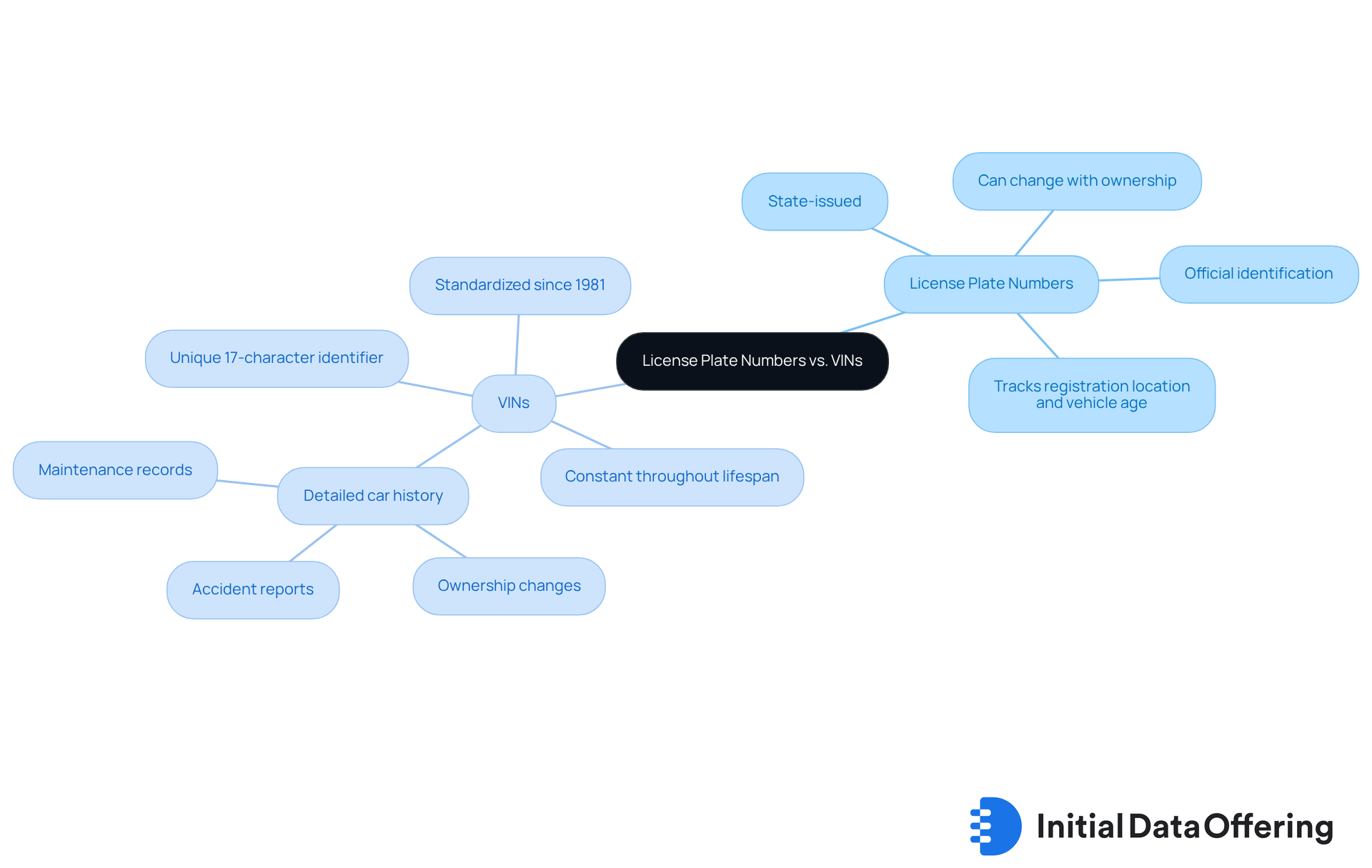
Privacy Concerns: What You Should Know About License Plate Lookups
are critical in the realm of license plate to VIN lookups. A considerable portion of users—around 76%—express feelings of when their automobile data is accessed. This statistic emphasizes the necessity for ethical considerations in this practice. It is crucial to handle resource usage responsibly, ensuring that any details acquired serve , such as verifying prior to a purchase.
agencies, such as the ACLU, stress the significance of adhering to ethical guidelines in utilizing resources. They promote openness and responsibility in accessing personal details. include:
- Obtaining consent from individuals before accessing their information
- Using it exclusively for intended purposes
Such actions nurture trust and protect privacy.
To ensure , users should always of their requests. They must also consider the potential impact on individuals' privacy. How can you ensure that your data requests align with ethical standards? By prioritizing ethical practices, we can foster a culture of in the use of personal information.
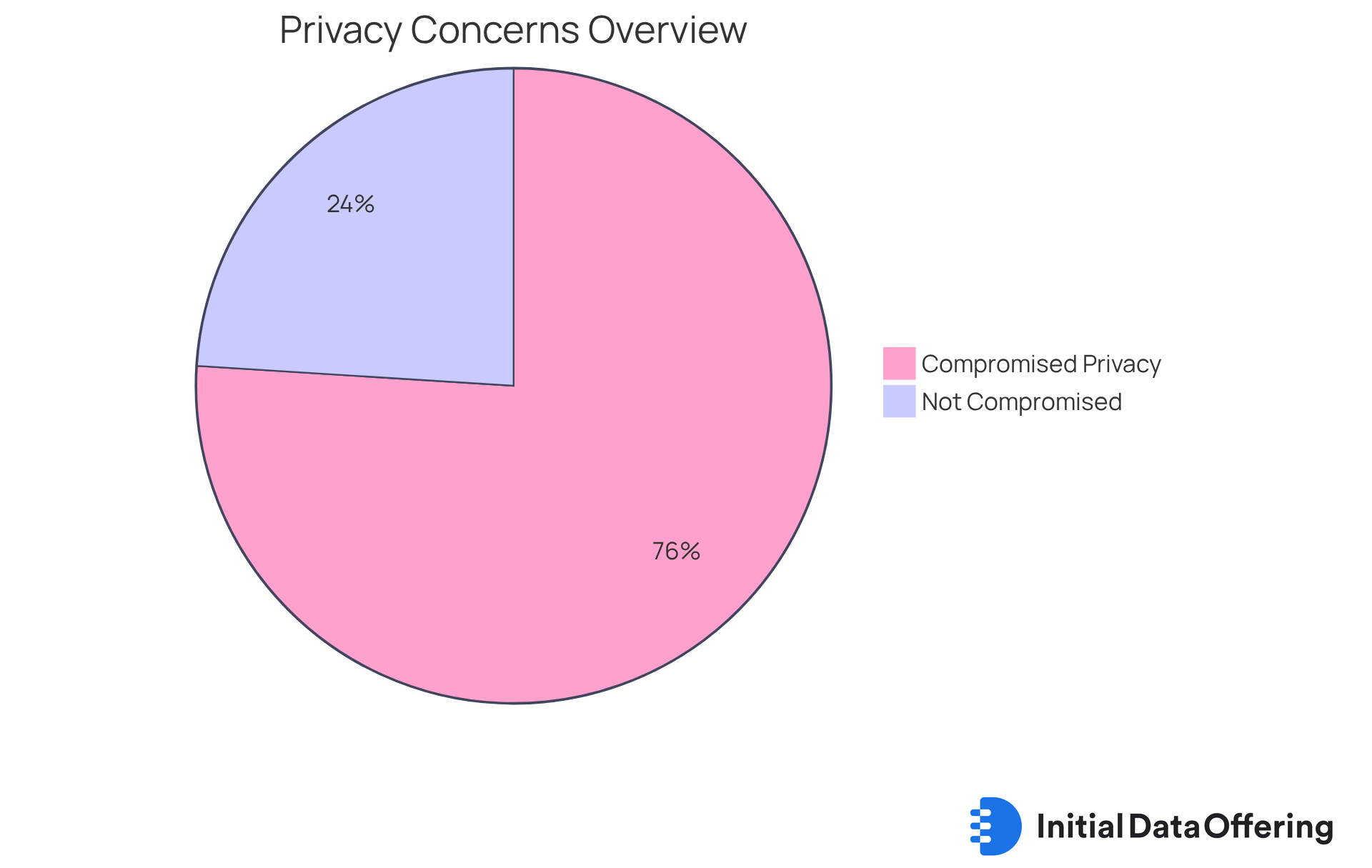
NHTSA Data: Enhance Your License Plate Lookup with Official Vehicle Records
Integrating information from the significantly enhances the quality of searches from license plate to VIN. NHTSA provides , which include essential features such as . The advantage of incorporating this data into license number lookups is that users can access a more and safety profile. This comprehensive insight not only aids in making but also promotes .
How might this data influence your next vehicle purchase or assessment?
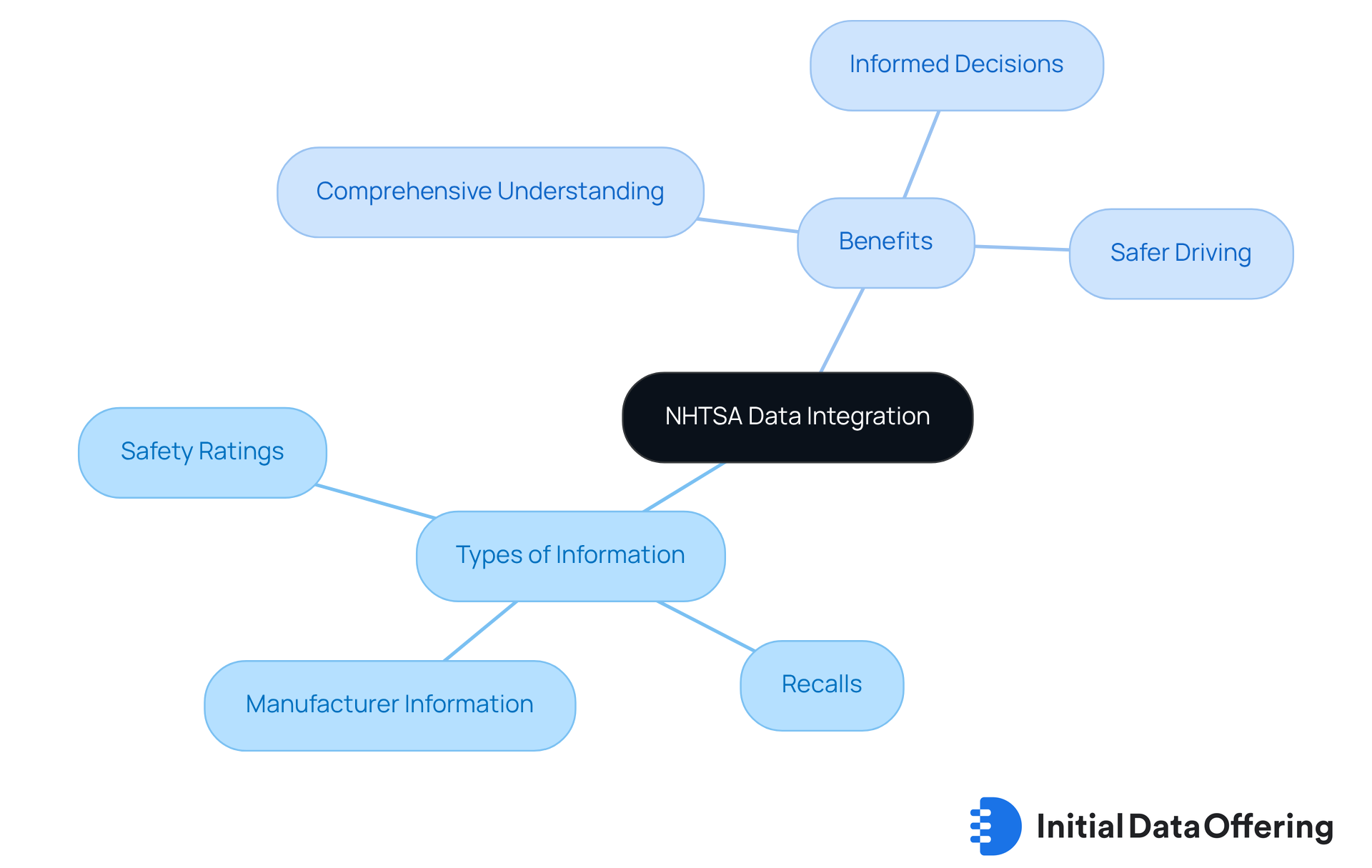
Common Misconceptions: Debunking Myths About License Plate Lookups
Misunderstandings regarding can generate considerable confusion among users. A common myth is that all license tag lookup services provide the same quality and depth of information; however, this is far from reality. The accuracy and comprehensiveness of data can vary widely between providers, impacting the insights users can gain.
Another widespread misunderstanding is the belief that license tag lookups are illegal. While there are , many operate within the law, providing to users. In fact, studies indicate that a significant percentage of users mistakenly believe these services are unlawful, which can deter them from utilizing legitimate resources.
By addressing and debunking these myths, users can approach license plate to VIN lookups with a more informed perspective, enabling them to make better decisions based on .
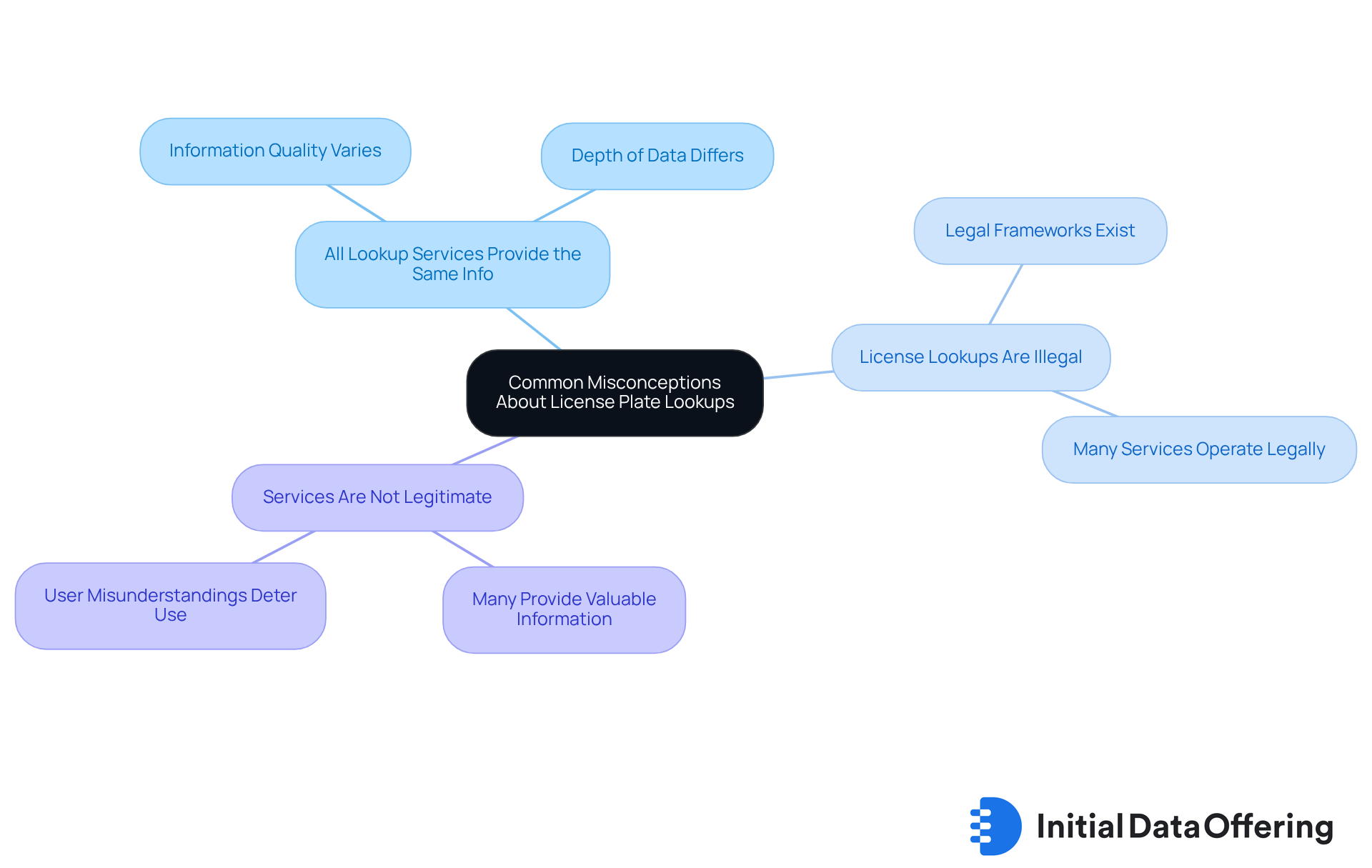
Conclusion
The insights on license plate to VIN lookups underscore the importance of accessing comprehensive vehicle data for informed decision-making. By understanding the various tools and services available, such as the Initial Data Offering and EpicVIN, users are empowered to navigate the complexities of vehicle history checks efficiently. These resources not only streamline the lookup process but also enhance the accuracy and reliability of the information obtained, leading to more informed choices.
Key points discussed encompass the legal considerations surrounding license plate lookups, the critical nature of data accuracy, and the advantages of uncovering a vehicle’s history and ownership details. Addressing common misconceptions clarifies the legalities and functionalities of these services, enabling users to utilize them confidently. As the automotive landscape evolves, the integration of official data from sources like the NHTSA enriches the lookup experience, providing users with vital insights into vehicle safety and history.
In a time when transparency and informed choices are crucial, leveraging reliable license plate to VIN lookup services becomes essential. By prioritizing ethical practices and understanding the nuances of vehicle data, both individuals and businesses can enhance their decision-making processes. Embrace these insights to navigate the automotive market effectively, ensuring that every vehicle purchase or assessment is supported by accurate and comprehensive information.
Frequently Asked Questions
What is the Initial Data Offering (IDO) and what does it provide?
The Initial Data Offering (IDO) is a centralized hub for accessing comprehensive information about automobiles, including the ability to convert license plates to VINs. It features datasets powered by SavvyIQ's AI-driven Recursive Data Engine, allowing users to obtain reliable data on automobile history, ownership, and specifications.
How can the data from IDO empower users' operations?
By leveraging the data from IDO, users can make informed choices that optimize their processes and enhance efficiency in their operations.
What services does EpicVIN offer for vehicle history insights?
EpicVIN offers an advanced license plate to VIN lookup service that provides detailed history reports for automobiles, including accident history, title status, and previous ownership records.
Why is accessing comprehensive vehicle history data important for potential buyers?
Accessing comprehensive vehicle history data is crucial for potential buyers as it enables them to make well-informed choices regarding auto purchases and helps them avoid costly mistakes by revealing potential issues before finalizing a deal.
What do industry experts say about the importance of vehicle history reports?
Industry experts, including Chris Hardesty, emphasize that vehicle history reports detail ownership, accidents, title status, and mileage, helping buyers spot red flags like salvage or flood history.
What are the limitations of vehicle history reports?
While vehicle history reports provide valuable insights, they may miss unreported repairs and do not reflect the car’s current condition, making a professional inspection necessary.
What legal considerations should be taken into account for license plate lookups?
It is crucial to understand that state regulations regarding access to automobile details can vary, with many states enforcing strict laws to protect personal data. Unauthorized access can lead to severe legal repercussions, including fines and criminal charges.
How have recent changes in laws affected access to vehicle details?
Recent legal changes have limited the disclosure of DMV data to protect individuals' privacy, particularly regarding unauthorized access, reflecting a growing awareness of safeguarding sensitive information.
What legal challenges have arisen concerning license plate lookup services?
Legal challenges have emerged where individuals or organizations faced scrutiny for misusing automobile-related data, leading to lawsuits and regulatory investigations, highlighting the importance of adhering to legal guidelines.
How many states have regulations permitting driver’s licenses irrespective of immigration status?
Currently, 19 states, along with the District of Columbia and Puerto Rico, have regulations permitting driver’s licenses for residents irrespective of immigration status, complicating access to transportation records.